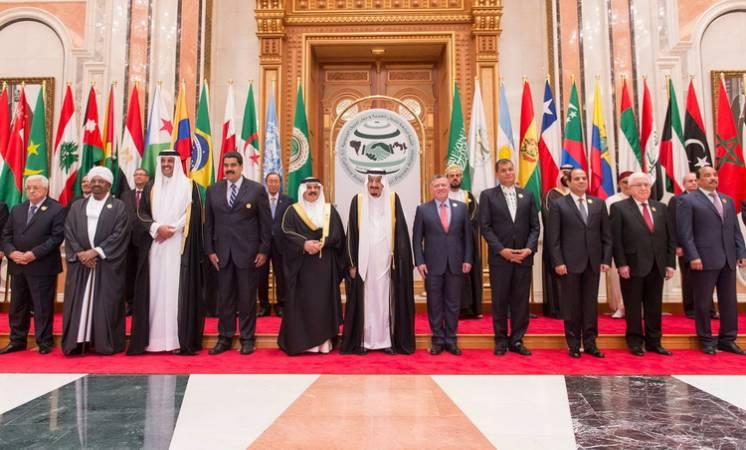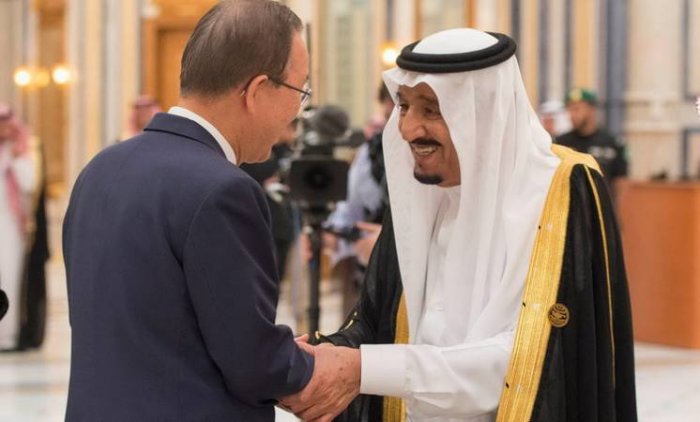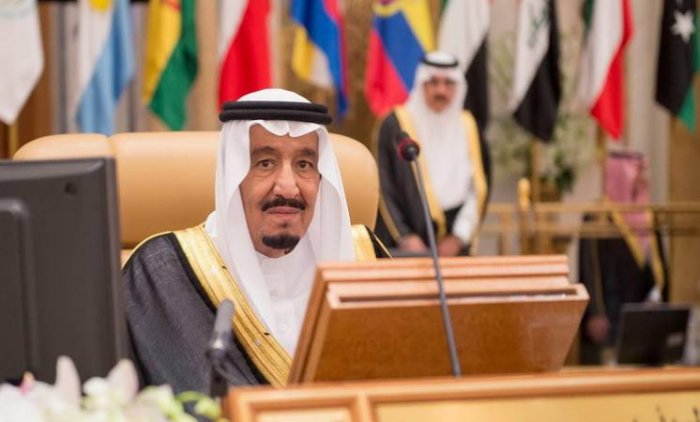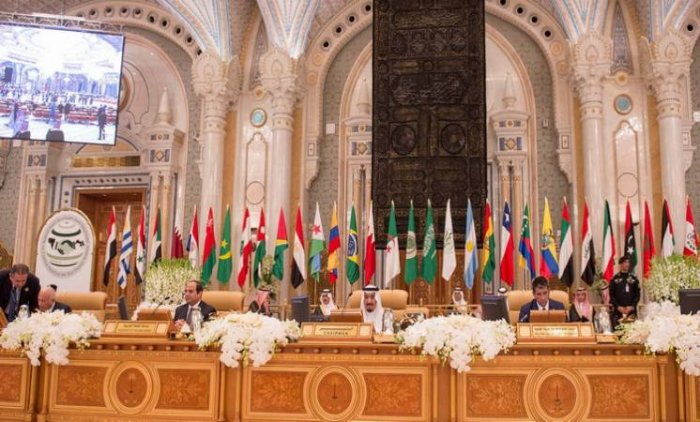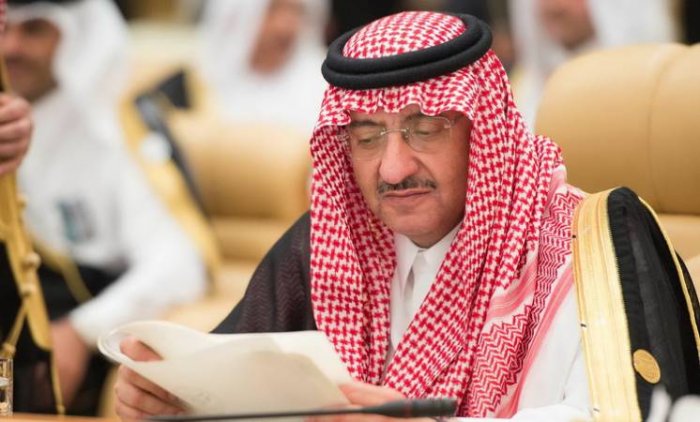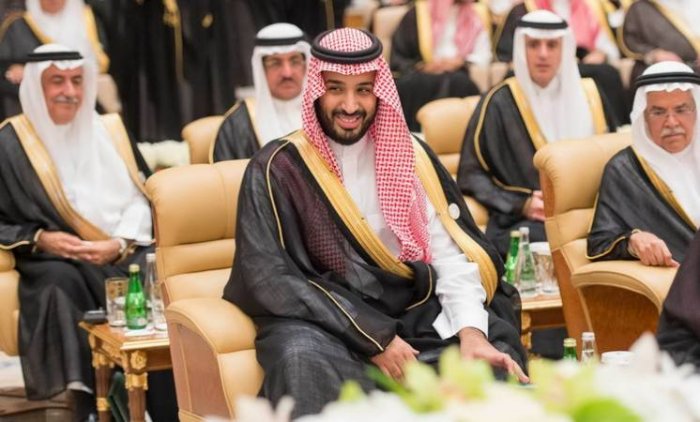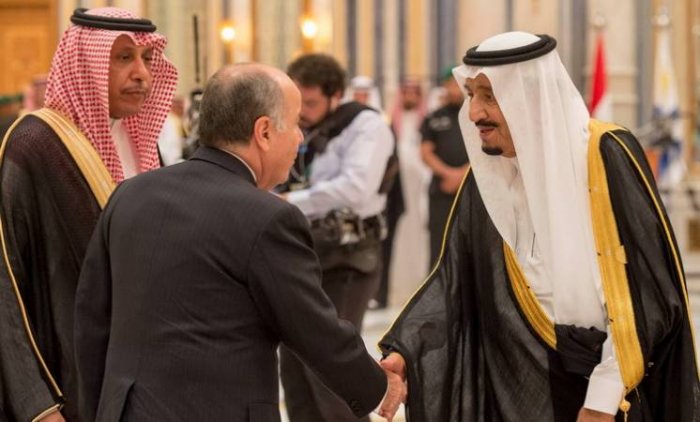
Latin, Arab leaders hold Saudi summit to strengthen ties
Custodian of the Two Holy Mosques King Salman opened the 4th Summit of Arab-South American Countries at the King Abdulaziz International Center for Conferences in Riyadh on Tuesday.
The two-day summit, which is being attended by leaders from 22 Arab League members and 12 nations from South America, is aimed at strengthening ties between the geographically distant but economically powerful regions.
Among those attending is United Nations Sevcretary-General Ban Ki-moon attended the opening in Riyadh of the Fourth Summit of South American-Arab Countries, chaired by Saudi King Salman.
State television showed the arrival of President Nicolas Maduro of Venezuela, whose country belongs to the Organization of Petroleum Exporting Countries (OPEC) along with Saudi Arabia, the world’s biggest oil exporter.
President Rafael Correa of Ecuador, OPEC’s smallest member, was also present, but other South American countries appeared to be represented by less powerful officials.
Arab presidents attending include Omar Al-Bashir of Sudan, Abdel Fattah El-Sissi of Egypt and Fuad Masum of Iraq, as well as Palestinian leader Mahmud Abbas.
Other rulers present include Gulf rulers and King Abdullah II of Jordan.
Ahead of the two days of talks, Sudanese Foreign Minister Ibrahim Ghandour said windows of cooperation have long existed “but haven’t been open enough to take advantage of the capabilities” of both regions.
For example, Sudan has land and water “that could enable it to become the Arab and South American food basket.”
The gatherings were an initiative of then Brazilian president Luiz Inacio Lula da Silva, whose country hosted the first summit.
Ahead of the talks, Arab League Secretary General Nabil Al-Arabi told Kuwait’s KUNA news agency that “trade between both regions has amounted to $30 billion after it was no more than $6 billion in 2005.”
Peru, which hosted the third meeting in 2012, last month became one of 12 Pacific rim countries to seal the world’s largest free trade area, known as the Trans-Pacific Partnership.
Chile is the only other South American nation included in that deal.
Saudi Foreign Minister Adel Al-Jubeir spoke of a “convergence of positions” between countries of the two regions on many issues and commended the Latin American nations’ “positive stance” toward the Palestinian question.
Al-Jubeir told a pre-summit meeting that the previous three summits tried to develop trade, investment and transport links.
There remain “promising opportunities for collaboration,” he said, according to a written text of his Monday speech.
Two South American nations, Argentina and Brazil, belong to the Group of 20 world’s largest economies, as does Saudi Arabia.
The kingdom and its Gulf neighbors pump much of the world’s oil, but Brazil and Venezuela are major producers as well.
There are also cultural ties, as Chile hosts about 350,000 Palestinian immigrants and their descendants who have settled there over the past century.
Recent immigration has taken more than 2,000 Syrian refugees fleeing the war in their homeland to Brazil since 2011.
The figure is far more than for any other Latin American state, although some pledged open doors and Venezuela’s Maduro said 20,000 were welcome in his country.






